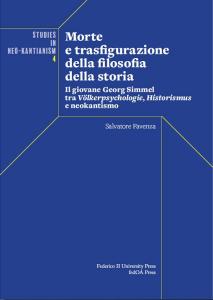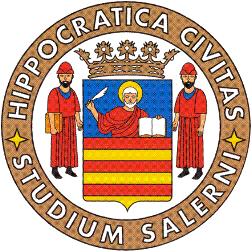Death and Transfiguration of Philosophy of History : the young Georg Simmel between Völkerpsychologie, Historismus and Neo-Kantianism
Keywords:
Philosophy of History, Simmel, Neo-Kantianism, Philosophy of Social Sciences, ModernitySynopsis

Publisher: FedOA Press - Federico II Open Access University Press
Series: Studies in Neo-Kantianism
Pages: 155
Language: Italian
NBN: http://nbn.depositolegale.it/resolver.pl?nbn=urn:nbn:it:unina-29640
Abstract: This study examines young Simmel’s reflections on social-historical knowledge and philosophy of history. I compare these reflections to three models of post-Hegelian thought: Moritz Lazarus and Heymann Steinthal’s Völkerpsychologie, Wilhelm Dilthey’s Historismus, and Wilhelm Windelband’s Neo-Kantianism. From different perspectives, these three authors tried to justify a scientific approach to cultural and social phenomena, considering the speculative philosophy of history obsolete because it was overtaken by the development of particular sciences since the early 19th century. Even if the old speculative philosophy of history had collapsed, the rejection of metaphysics’ legacy proved to be a challenging task. This legacy reappears in the post-Hegelian models of thought, showing how the philosophy of history (which seemed to be dead) still expresses the human need for meaning. A human need that urges to find expression. Simmel’s work, “The Problems of Philosophy of History” (1892), examines the persistence of the philosophy of history and its changing function. Philosophy of history no longer represents the story of a guaranteed salvation but expresses philosophically the problems that are constantly renewed by the people who live history.
Downloads














